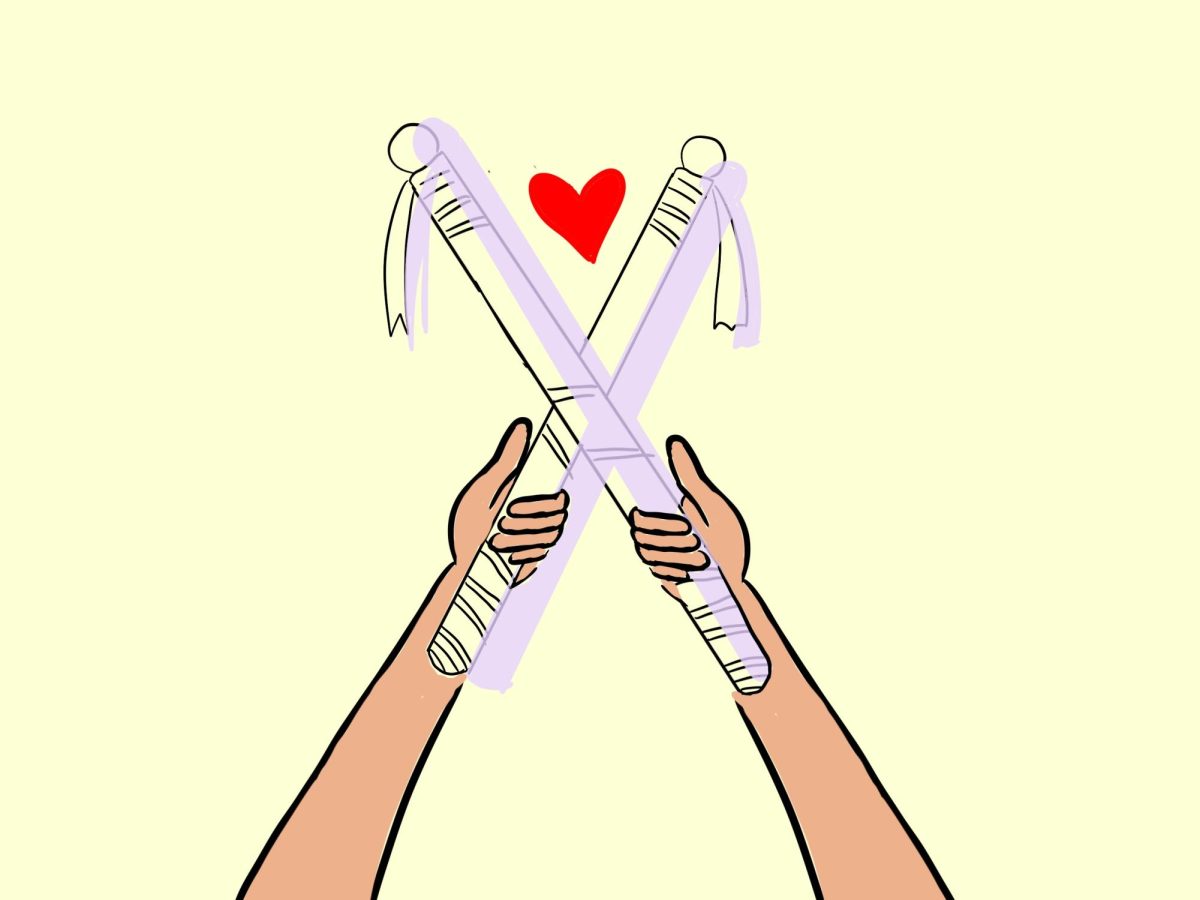Gunn High School alum Stanley Zhong’s college application story went viral in October 2023 for how many colleges he got rejected from. Despite founding a tech start-up called Rabbit Sign and boasting a 3.96 GPA as well as having a near-perfect SAT score of 1590, Zhong was rejected by 14 out of the 18 colleges he applied to.
Zhong’s application story embodies the anxiety that many MVHS students have: if even Zhong, with his incredible stats and extracurriculars, couldn’t get into most of the colleges he applied to, what chance do we have?
Such self-doubt starts to pervade students’ thoughts, leading many of us to believe we must be better than all our peers to be admitted into the college we want. While healthy competition has many benefits such as an increase in motivation, it becomes toxic when students begin to place not only their self-worth but the worth of others on how well their college profile looks compared to other students.
 When students engage in conversations about other people’s test scores, grades and leadership positions with their friends or classmates, it’s not like we intend to spread toxicity or hope to watch other people suffer – it’s just that people who are anxious or want to feel in control often gossip. It makes us feel better temporarily when we’re talking with a group about someone else, and might even make us feel closer to our friends or the people we’re talking with. But when the conversation is over, not only do we end up feeling more insecure as the conversation hasn’t changed anything besides emphasizing the importance of our stats and extracurriculars, gossiping may have unintended negative impacts on our relationships.
When students engage in conversations about other people’s test scores, grades and leadership positions with their friends or classmates, it’s not like we intend to spread toxicity or hope to watch other people suffer – it’s just that people who are anxious or want to feel in control often gossip. It makes us feel better temporarily when we’re talking with a group about someone else, and might even make us feel closer to our friends or the people we’re talking with. But when the conversation is over, not only do we end up feeling more insecure as the conversation hasn’t changed anything besides emphasizing the importance of our stats and extracurriculars, gossiping may have unintended negative impacts on our relationships.
More often than not, we end up projecting our insecurities — low self-esteem and fear of inferiority — on our closest friends. For example, some students lie about their extracurriculars and gatekeep their plans in fear that other people will copy their activities.
If even our friends feel as if we don’t trust them, or are constantly treating them like competitors, tension can grow and the friendship becomes difficult to continue. Situations like these become much worse when students apply for the same position as their friends in a club or apply to the same college with similar majors.
In an environment where our self-worth and perception of others are precariously linked to academic achievement and stats, what should we do when our closest friends become our direct competition? How can you outperform your friend and get the position above your friend while maintaining the friendship? Or similarly, what would you do if your friend got the club officer position you also wanted? Trying to be better than everyone else while wholeheartedly supporting your friends and celebrating their achievements can be challenging due to the inherent conflict between competitiveness and genuine friendship.
There is nothing wrong with bettering ourselves — the situation only becomes toxic when we overly involve ourselves with the progress of others. If we want to seek improvement, we should strive to be the best version of ourselves, not become the best to be better than everyone else. And this self-improvement shouldn’t be motivated by a fear that if we’re not the best, we won’t be able to attain the future we want, because that is untrue. Fear of failure or not meeting certain standards might initially drive action, but it’s not a sustainable or healthy motivator in the long term. It can lead to stress, anxiety and burnout, rather than genuine growth and fulfillment.
We also need to learn that by basing someone’s worth on something as subjective as our stats or what summer programs we’re admitted to, we are setting ourselves up for a high school career of constant insecurity and self-doubt.
The next time people talk about someone else’s extracurriculars or academic profile, let’s remember there’s no need to entertain them. It can be difficult to call out friends for their actions, especially if we were like that not too long ago, but it’s okay to let them be. We’ve been concerning ourselves with how others are doing for way too long, and it’s about time we start focusing on ourselves.

























